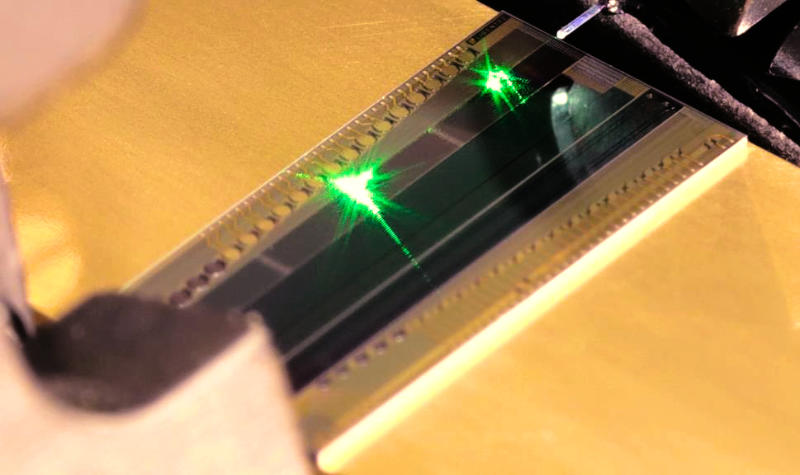Ultrashort soliton pulses from a chip-integrated Fabry-Perot microresonator
Chip-integrated photonic-crystal Fabry-Perot microresonators produce for the first time ultrashort soliton pulses. This new approach permits unprecedented design freedom and creates opportunities for high-repetition rate pulse sources in previously inaccessible wavelengths regimes.

Femtosecond dissipative Kerr solitons (DKS) a self-enforcing ultrashort pulse waveforms that can form in a Kerr-nonlinear microresonator. Besides being fascinating nonlinear optical systems with rich dynamics (soliton crystals, soliton molecules, time crystals, synchronization, ...), they are key to novel applications ranging from optical spectroscoy, communication and signal processing to searches for extra-solar planets. Usually, DKS are generated with great success in so called ring-microresonators in the near-infrared wavelength regime. Extending DKS technology to other wavelengths regimes is so far challenging, due to limited degrees of freedom in resonator desig, e.g. for tailoring the resonators dispersion. Now, it is for the first time possible to generate DKS in chip-integrated Fabry-Perot microresonators. These resonators use photonic crystal mirrors with unprecedernted design freedom creating opportunities for high-repetition rate pulse sources in previously inaccessible wavelengths regimes.
Reference:
Soliton Pulses in Photonic Crystal Fabry-Perot Microresonators; Thibault Wildi, Mahmoud A. Gaafar, Thibault Voumard, Markus Ludwig, Tobias Herr; Optica 10, 6, 650-656 (2023)